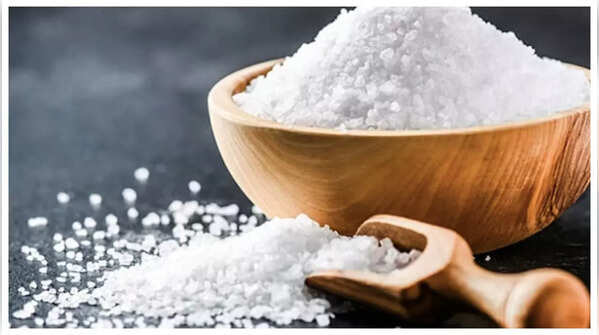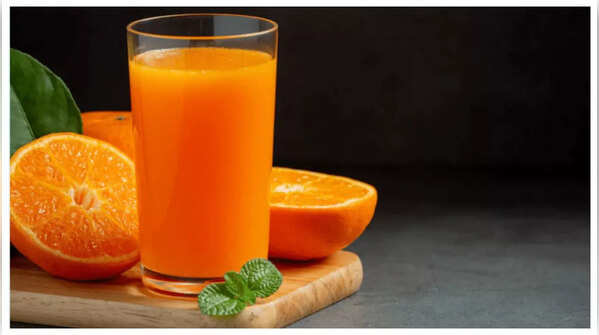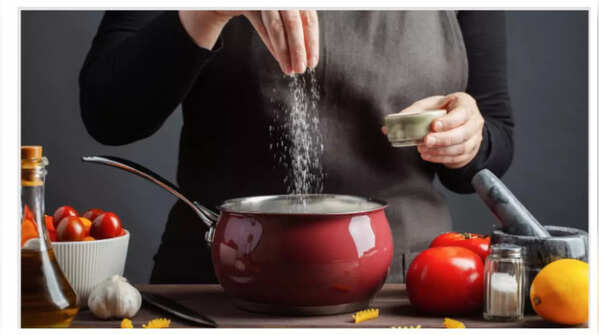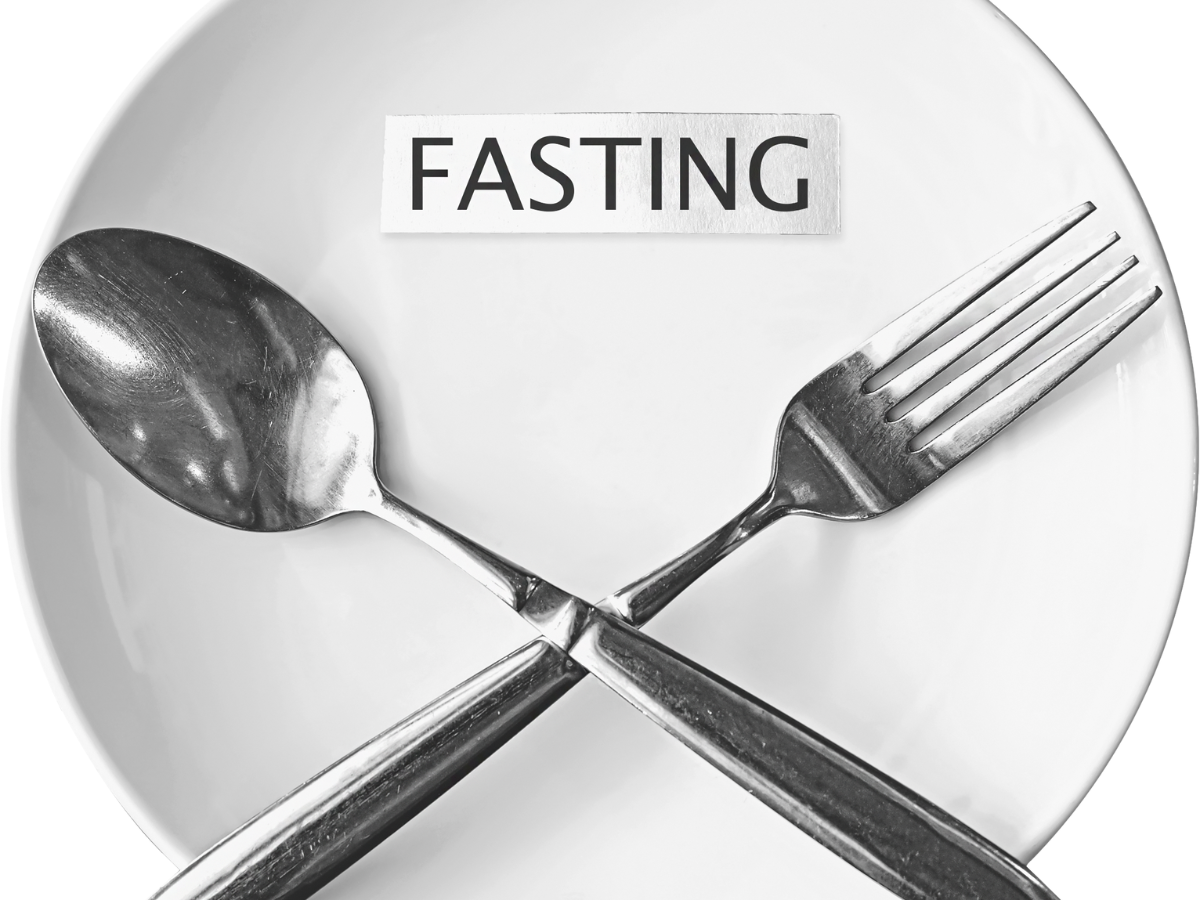
1/8
7 popular wellness trends that are making people sick
The internet these days is filled with "magical" wellness trends - right from weight loss, to benefits of intermittent fasting to going off sugar, etc. However, not every wellness trend is good for you, or anyone else for that matter. The fact is that each body is different, and what works for you might not work with someone else, hence it is important to not follow any trend blindly. Instead, one should learn to listen to their body, and take advice from a qualified doctor rather than the internet. Here are 7 such wellness trends that might be doing more harm than good (source: drjayeshsharma)

2/8
Not using iodized salt
Many people avoid iodized salt thinking all salt is bad or that natural sea salt is healthier. But skipping iodized salt can lead to iodine deficiency, which is harmful to your body. Iodine is an essential mineral that your thyroid gland needs to produce hormones that regulate metabolism, energy, and growth. Without enough iodine, the thyroid cannot work properly, leading to conditions like goiter (swelling of the thyroid), fatigue, weight gain, and even mental development issues in children. Using non-iodized salt or cutting out salt completely without supplementing iodine can cause these problems. Iodized salt is the easiest and most reliable way to get enough iodine in your diet, especially in areas where iodine deficiency is common.

3/8
Giving only juice (and raw salad) to someone who is sick
Juice cleanses and liquid diets are trendy, but giving only juice to a sick person can be dangerous and delay recovery. When someone is unwell, their body needs balanced nutrition—proteins, fats, vitamins, and minerals—to repair tissues and fight infections. Juice mainly provides sugar and some vitamins but lacks protein and healthy fats, which are essential for healing. This imbalance can weaken the immune system and make the person feel more tired or sick for longer. Moreover, the high sugar content in many juices can cause blood sugar spikes, which is especially harmful for people with diabetes or infections. Instead, a well-rounded diet with soft, easy-to-digest foods is better during illness.

4/8
Going milk free
Many wellness enthusiasts avoid milk, believing it causes mucus, is fattening, or is unhealthy. However, milk is a rich source of calcium, vitamin D, and high-quality protein, all vital for strong bones, teeth, and muscle health. Avoiding milk without replacing these nutrients can lead to weak bones, dental problems, muscle cramps, and even osteoporosis later in life. Unless you have a true allergy or lactose intolerance, milk can be a healthy part of your diet. There are also many low-fat or fermented milk options like yogurt that can be easier to digest. Cutting out milk without proper substitutes can unintentionally harm your overall nutrition.

5/8
Cutting out salt
Many people try to cut out salt completely, thinking salt is always bad for health. While reducing excessive salt intake is important, especially for people with high blood pressure, cutting salt out entirely can be dangerous. Salt contains sodium, which is essential for nerve function, muscle contraction, and maintaining fluid balance in the body. Too little sodium can cause hyponatremia, leading to symptoms like headaches, dizziness, confusion, muscle cramps, seizures, and in extreme cases, coma. Salt also helps maintain blood pressure and supports proper kidney function. The key is to consume salt in moderation rather than eliminating it completely.

6/8
Going gluten free (without need)
Gluten-free diets have become very popular, even among people who do not have gluten intolerance or celiac disease. Gluten is a protein found in wheat, barley, and rye, and for most people, it is safe and part of a healthy diet. Avoiding gluten unnecessarily can lead to nutrient deficiencies, especially in fiber, B vitamins, and minerals found in whole grains. This can cause digestive issues like constipation and reduce energy levels. Gluten-free products are often more expensive and may contain more sugar or fat to improve taste. Unless diagnosed with gluten sensitivity or celiac disease, there is no proven benefit in going gluten-free, and it may even make your diet less balanced.

7/8
Drinking lemon juice first thing in the morning
Many people believe that drinking lemon juice on an empty stomach detoxifies the body and boosts metabolism. While lemon juice is a good source of vitamin C and antioxidants, drinking it first thing in the morning can irritate the stomach lining, especially if you have acid reflux, ulcers, or gastritis. The acidity of lemon juice can cause heartburn, stomach pain, or worsen existing digestive problems. Also, lemon juice alone does not detoxify the body; your liver and kidneys naturally remove toxins effectively. A better way to support your body is by drinking plain water and eating a balanced breakfast to keep your digestion healthy.

8/8
Using jaggery/honey instead of sugar
Switching to natural sweeteners like jaggery or honey is common among health-conscious people, but overusing them can be harmful just like regular sugar. Jaggery and honey do contain some minerals and antioxidants, but they are still forms of sugar and raise blood glucose levels. Excess consumption can lead to weight gain, increased risk of diabetes, and tooth decay. Many people believe these natural sweeteners are “healthy” and consume them in large amounts, which can cause the same health problems as refined sugar. Moderation is important, and sweeteners should be used sparingly regardless of their source.
Follow Us On Social Media

 1 day ago
47
1 day ago
47




























 English (US)
English (US)